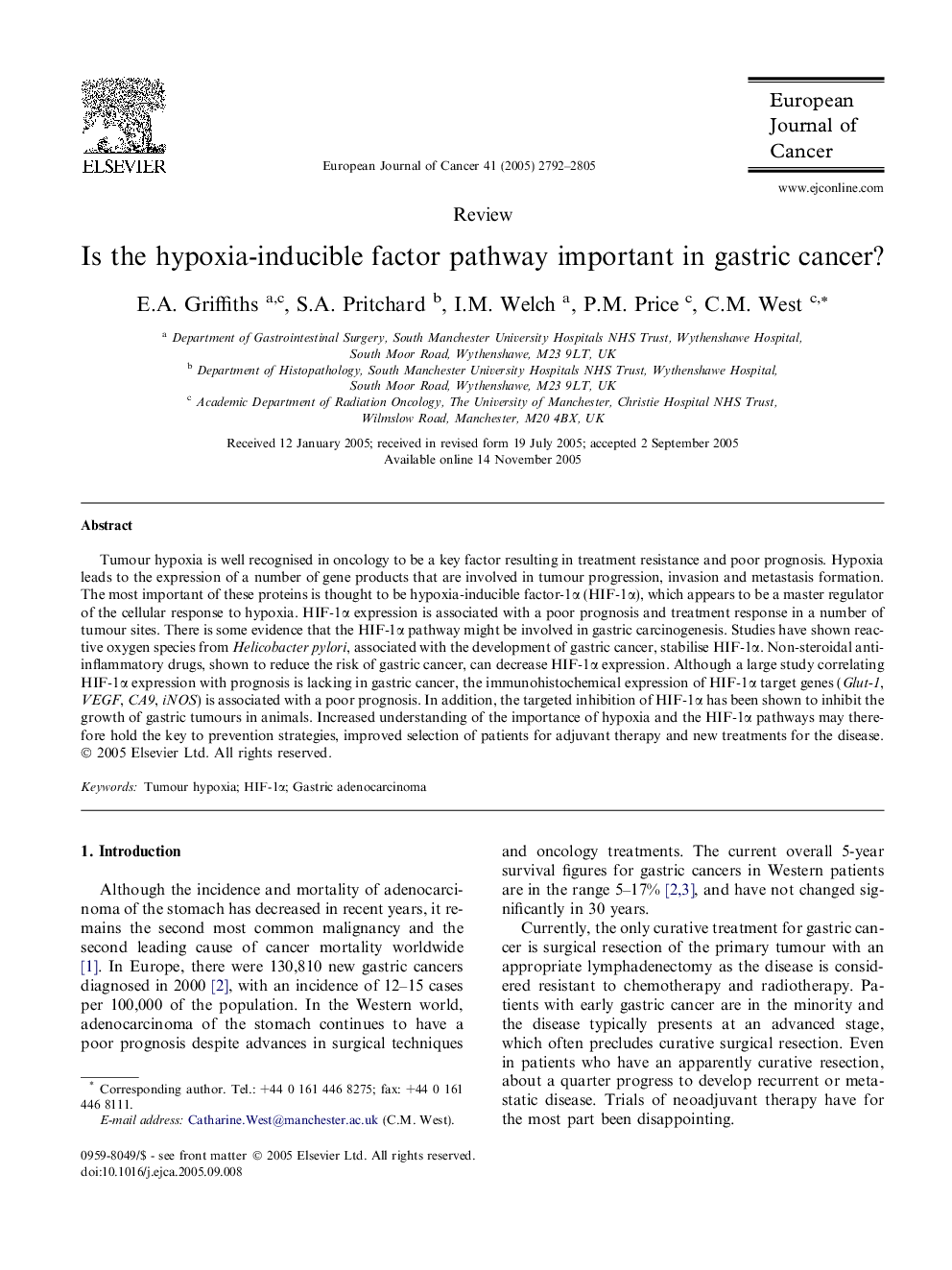| کد مقاله | کد نشریه | سال انتشار | مقاله انگلیسی | نسخه تمام متن |
|---|---|---|---|---|
| 2126457 | 1547293 | 2005 | 14 صفحه PDF | دانلود رایگان |

Tumour hypoxia is well recognised in oncology to be a key factor resulting in treatment resistance and poor prognosis. Hypoxia leads to the expression of a number of gene products that are involved in tumour progression, invasion and metastasis formation. The most important of these proteins is thought to be hypoxia-inducible factor-1α (HIF-1α), which appears to be a master regulator of the cellular response to hypoxia. HIF-1α expression is associated with a poor prognosis and treatment response in a number of tumour sites. There is some evidence that the HIF-1α pathway might be involved in gastric carcinogenesis. Studies have shown reactive oxygen species from Helicobacter pylori, associated with the development of gastric cancer, stabilise HIF-1α. Non-steroidal anti-inflammatory drugs, shown to reduce the risk of gastric cancer, can decrease HIF-1α expression. Although a large study correlating HIF-1α expression with prognosis is lacking in gastric cancer, the immunohistochemical expression of HIF-1α target genes (Glut-1, VEGF, CA9, iNOS) is associated with a poor prognosis. In addition, the targeted inhibition of HIF-1α has been shown to inhibit the growth of gastric tumours in animals. Increased understanding of the importance of hypoxia and the HIF-1α pathways may therefore hold the key to prevention strategies, improved selection of patients for adjuvant therapy and new treatments for the disease.
Journal: European Journal of Cancer - Volume 41, Issue 18, December 2005, Pages 2792–2805